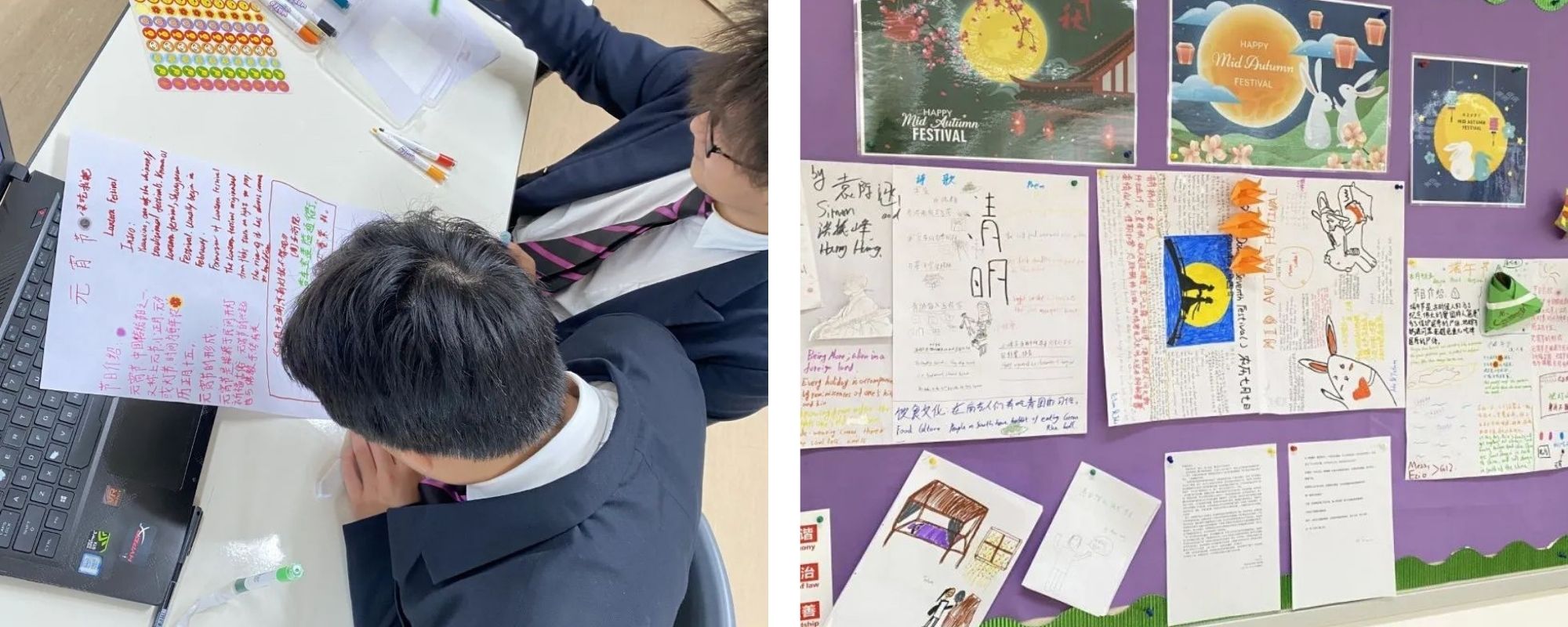Malvern College Chengdu has always adhered to the educational philosophy of having Chinese roots and international perspectives. We understand that national culture, language, and literature are the cornerstones of growth. As a result, our Chinese language and culture-related courses have become the main method of building students’ national pride and enhancing their identities. Through this curriculum, students learn about Chinese culture and history, experience the beauty of the language in their readings, and strengthen their national identities through various activities and experiences.
In our secondary school’s Chinese class two weeks ago, students used an interdisciplinary learning approach to create posters to rediscover and promote traditional Chinese holidays. Students were divided into pairs and each group chose two classic Chinese holidays. By collecting data, summarising holiday stories, appreciating ancient poetry, and combining their own experiences and their creative thinking, students promoted traditional Chinese culture by telling Chinese stories in both English and Chinese.

This project’s goal was not only to improve students’ knowledge but also to help them understand the profound meanings behind the holidays they celebrate, especially the traditional Chinese festivals, which often have long histories and profound meanings. In addition to literary knowledge, the students in this unit designed and coded a corresponding website in which they included the 24 solar terms and Chinese food culture. Of course, while we look back at history, we should also enjoy the present and anticipate the future. From the ancient Silk Road to the present day “One Belt One Road” initiative, our students have deeply experienced China’s development and changes, and we believe this will surely guide them as they plan their future careers.

Aside from making posters and designing a website, at the end of this unit, the children will also create an original video commercial to promote China’s new trends, for example, online shopping, mobile payments, high-speed railway, bicycle-sharing, and more. Let’s wait and see what they have in store for us.
In our classrooms at MCC we use a blend of Chinese and Western instruction and assessment techniques to develop our students’ academic ability, while simultaneously developing their thinking, analysis, and exploration skills to help our students adapt to today’s constantly evolving social environment.

